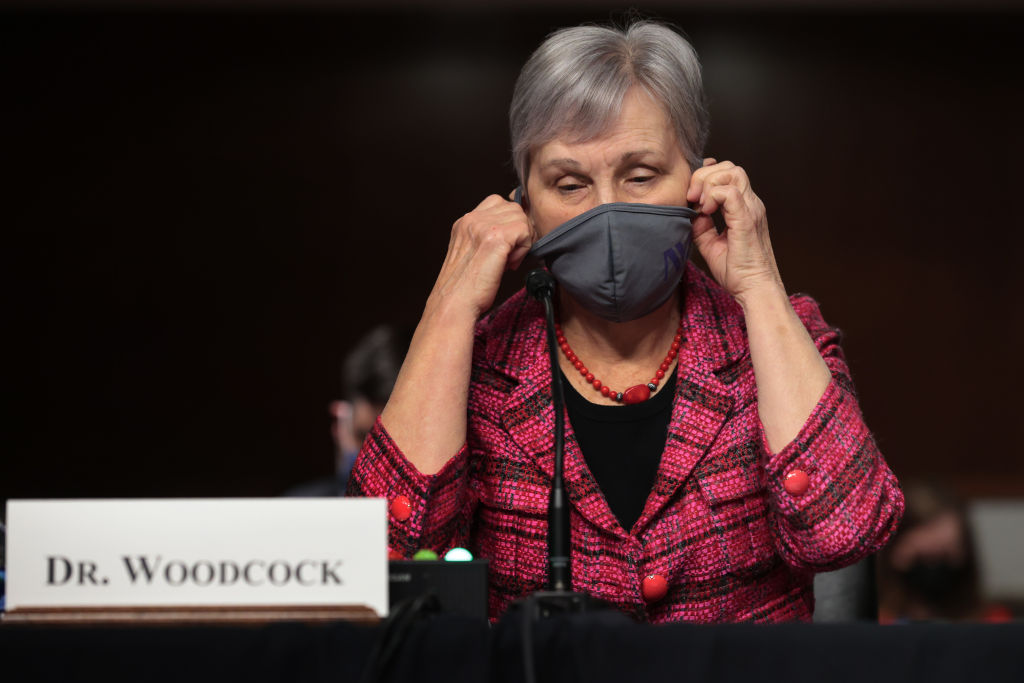Health experts say Omicron is headed for a sharp drop, most Americans will get infected, everyone's confused


A free daily email with the biggest news stories of the day – and the best features from TheWeek.com
You are now subscribed
Your newsletter sign-up was successful
There's good news about this Omicron phase of the COVID-19 pandemic, and bad news, but much of it is based on educated guesses and the good and bad often blur together. One bit of good news, The Associated Press reports, is that "scientists are seeing signals that COVID-19's alarming Omicron wave may have peaked in Britain and is about to do the same in the U.S., at which point cases may start dropping off dramatically."
"It's going to come down as fast as it went up," says Ali Mokdad, a professor of health metrics sciences at the University of Washington, whose influential model predicts that daily cases will peak at 1.2 million by Jan. 19 then start plummeting, he says, "simply because everybody who could be infected will be infected."
"I think it's hard to process what's actually happening right now," acting FDA commissioner Janet Woodcock told a Senate panel on Tuesday, "which is, most people are going to get COVID." People should try to avoid infection, but as a society the priority right now should be to "make sure the hospitals can still function" and protect "other essential services as this variant sweeps through the population," she added. "I don't think that will last a really long time."
The Week
Escape your echo chamber. Get the facts behind the news, plus analysis from multiple perspectives.

Sign up for The Week's Free Newsletters
From our morning news briefing to a weekly Good News Newsletter, get the best of The Week delivered directly to your inbox.
From our morning news briefing to a weekly Good News Newsletter, get the best of The Week delivered directly to your inbox.
Where we are now, The Wall Street Journal reports, is record-high averages of COVID-19 infections and hospitalizations, but significantly below-peak ICU occupancy and deaths.
"There are still a lot of people who will get infected as we descend the slope on the backside," Lauren Ancel Meyers, whose University of Texas COVID-19 Modeling Consortium predicts reported cases will peak within the week, tells AP. "At the end of this wave, far more people will have been infected by some variant of COVID," she added, but "Omicron may be that point where we transition from what is a catastrophic global threat to something that's a much more manageable disease."
Or, Ancel Meyers says, a variant worse than Omicron could strike next.
"As Americans push into a third winter of viral discontent," The Washington Post reports, "a strange unity of confusion is emerging, a common inability to decipher conflicting advice and clashing guidelines coming from government, science, health, media, and other institutions." For example, the Post says, "in liberal and conservative media alike, countervailing voices alternately raise and dash hopes that the pandemic endgame is nigh." And many Americans are tuning out the muddled messages and managing the best they can.
A free daily email with the biggest news stories of the day – and the best features from TheWeek.com
Peter has worked as a news and culture writer and editor at The Week since the site's launch in 2008. He covers politics, world affairs, religion and cultural currents. His journalism career began as a copy editor at a financial newswire and has included editorial positions at The New York Times Magazine, Facts on File, and Oregon State University.
-
 Quiz of The Week: 14 – 20 February
Quiz of The Week: 14 – 20 FebruaryQuiz Have you been paying attention to The Week’s news?
-
 The Week Unwrapped: Do the Freemasons have too much sway in the police force?
The Week Unwrapped: Do the Freemasons have too much sway in the police force?Podcast Plus, what does the growing popularity of prediction markets mean for the future? And why are UK film and TV workers struggling?
-
 Properties of the week: pretty thatched cottages
Properties of the week: pretty thatched cottagesThe Week Recommends Featuring homes in West Sussex, Dorset and Suffolk
-
 A Nipah virus outbreak in India has brought back Covid-era surveillance
A Nipah virus outbreak in India has brought back Covid-era surveillanceUnder the radar The disease can spread through animals and humans
-
 Trump HHS slashes advised child vaccinations
Trump HHS slashes advised child vaccinationsSpeed Read In a widely condemned move, the CDC will now recommend that children get vaccinated against 11 communicable diseases, not 17
-
 Covid-19 mRNA vaccines could help fight cancer
Covid-19 mRNA vaccines could help fight cancerUnder the radar They boost the immune system
-
 FDA OKs generic abortion pill, riling the right
FDA OKs generic abortion pill, riling the rightSpeed Read The drug in question is a generic version of mifepristone, used to carry out two-thirds of US abortions
-
 The new Stratus Covid strain – and why it’s on the rise
The new Stratus Covid strain – and why it’s on the riseThe Explainer ‘No evidence’ new variant is more dangerous or that vaccines won’t work against it, say UK health experts
-
 RFK Jr. vaccine panel advises restricting MMRV shot
RFK Jr. vaccine panel advises restricting MMRV shotSpeed Read The committee voted to restrict access to a childhood vaccine against chickenpox
-
 Texas declares end to measles outbreak
Texas declares end to measles outbreakSpeed Read The vaccine-preventable disease is still spreading in neighboring states, Mexico and Canada
-
 RFK Jr. shuts down mRNA vaccine funding at agency
RFK Jr. shuts down mRNA vaccine funding at agencySpeed Read The decision canceled or modified 22 projects, primarily for work on vaccines and therapeutics for respiratory viruses
